Filter by
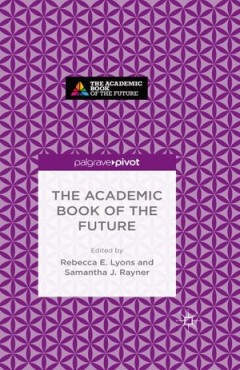
The Academic Book of the Future
This book is open access under a CC-BY licence. Part of the AHRC/British Library Academic Book of the Future Project, this book interrogates current and emerging contexts of academic books from the perspectives of thirteen expert voices from the connected communities of publishing, academia, libraries, and bookselling.
- Edition
- -
- ISBN/ISSN
- 9781137595775
- Collation
- -
- Series Title
- -
- Call Number
- 370 ACA
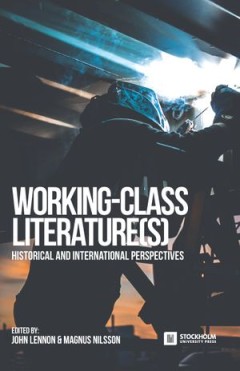
Working-Class Literature(s) : Historical and International Perspectives
"The aim of this collection is to make possible the forging of a more robust, politically useful, and theoretically elaborate understanding of working-class literature(s). These essays map a substantial terrain: the history of working-class literature(s) in Russia/The Soviet Union, The USA, Finland, Sweden, The UK, and Mexico. Together they give a complex and comparative – albeit far from com…
- Edition
- -
- ISBN/ISSN
- 9789176350515
- Collation
- -
- Series Title
- -
- Call Number
- 800 WOR
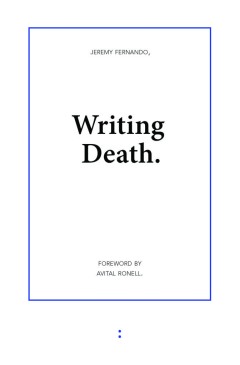
Writing Death
Writing Death opens a meditation on the possibility of mourning; of whether there is a subject, or even object, that one mourns—of whether one is mourning, can only mourn, the very impossibility of mourning itself. The manuscript is framed by two attempts at mourning—Avital Ronell’s “The Tactlessness of an Unending Fadeout” and Jeremy Fernando’s “adieu.” In-between—for this is…
- Edition
- -
- ISBN/ISSN
- 9789081709101
- Collation
- -
- Series Title
- -
- Call Number
- 080 FER w
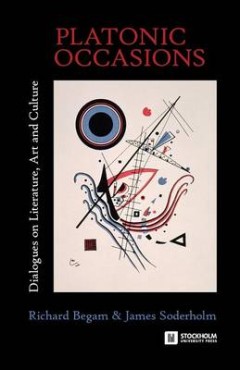
Platonic Occasions : Dialogues On Literature, Art and Culture
In Platonic Occasions, Richard Begam and James Soderholm reflect upon a wide range of thinkers, writers and ideas from Plato, Descartes and Nietzsche to Shakespeare, the Romantics and the Moderns—from Evil, Love and Death to Art, Memory and Mimesis. The dialogues suggest that Percy Shelley was right when he claimed “We are all Greeks,” and yet what have we learned about the initiatives of…
- Edition
- -
- ISBN/ISSN
- 9789176350003
- Collation
- -
- Series Title
- -
- Call Number
- 800 BEG p
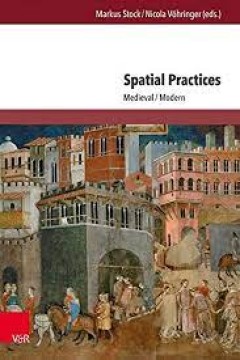
Spatial Practices : Medieval/Moder
This collection of essays approaches the study of space and place from a historically inclusive perspective; it gives new insights into historical shifts and changes in the construction and perception of space as well as historical developments and diachonicity of literary, social, and architectural sites and places. It aims to gather a number of case studies in order to collect historically co…
- Edition
- -
- ISBN/ISSN
- 9783847100010
- Collation
- -
- Series Title
- -
- Call Number
- 080 STO s
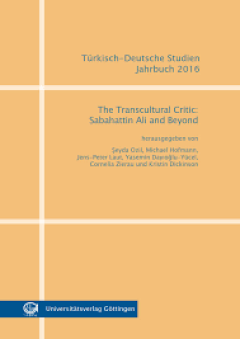
The Transcultural Critic : Sabahattin Ali and Beyond
The central theme of this volume is the work of Sabahattin Ali, the Turkish author and translator from German into Turkish who achieved posthumous success with his novel Kürk Mantolu Madonna (The Madonna in the Fur Coat). Our contributors analyze this novel, which takes place largely in Germany, and several other texts by Ali in the context of world literature, (cultural) translation, and inte…
- Edition
- -
- ISBN/ISSN
- 9783863952976
- Collation
- -
- Series Title
- -
- Call Number
- 800 TRA
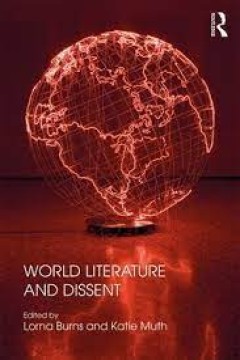
World Literature and Dissent
World Literature and Dissent reconsiders the role of dissent in contemporary global literature. Bringing together scholars of world and postcolonial literatures, the contributors explore the aesthetics of resistance through concepts including the epistemology of ignorance, the rhetoric of innocence, the subversion of paying attention, and the radical potential of everydayness. Add…
- Edition
- -
- ISBN/ISSN
- 9781351357715
- Collation
- -
- Series Title
- -
- Call Number
- 800 WOR
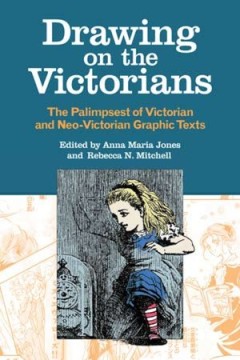
Drawing on the Victorians : The Palimpsest of Victorian and Neo-Victorian Gra…
Late 19th-century Britain experienced an explosion of visual print culture and a simultaneous rise in literacy across social classes. New printing technologies facilitated quick and cheap dissemination of images—illustrated books, periodicals, cartoons, comics, and ephemera—to a mass readership. This Victorian visual turn prefigured the present-day impact of the Internet on how images are p…
- Edition
- -
- ISBN/ISSN
- 9780821422472
- Collation
- -
- Series Title
- -
- Call Number
- 800 DRA
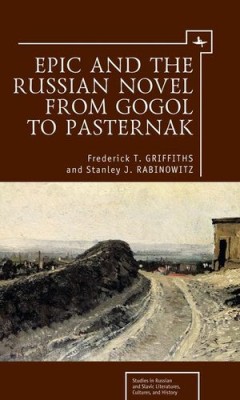
Epic and the Russian Novel from Gogol to Pasternak
"Epic and the Russian Novel from Gogol to Pasternak examines the origin of the nineteen- century Russian novel and challenges the Lukács-Bakhtin theory of epic. By removing the Russian novel from its European context, the authors reveal that it developed as a means of reconnecting the narrative form with its origins in classical and Christian epic in a way that expressed the Russian desire to …
- Edition
- -
- ISBN/ISSN
- 9781618116826
- Collation
- -
- Series Title
- -
- Call Number
- 800 GRI e
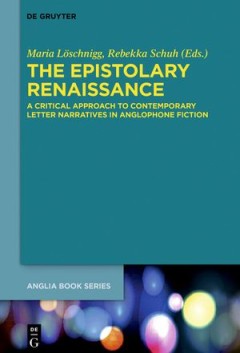
The Epistolary Renaissance : A Critical Approach to Contemporary Letter Narra…
Since the late twentieth century, letters in literature have seen a remarkable renaissance. The prominence of letters in recent fiction is due in part to the rediscovery, by contemporary writers, of letters as an effective tool for rendering aspects of historicity, liminality, marginalization and the expression of subjectivity vis-à-vis an ‘other’; it is also due, however, to the artistica…
- Edition
- -
- ISBN/ISSN
- 9783110582024
- Collation
- -
- Series Title
- Buchreihe der Anglia / Anglia Book Series
- Call Number
- 800 EPI
 Computer Science, Information & General Works
Computer Science, Information & General Works  Philosophy & Psychology
Philosophy & Psychology  Religion
Religion  Social Sciences
Social Sciences  Language
Language  Pure Science
Pure Science  Applied Sciences
Applied Sciences  Art & Recreation
Art & Recreation  Literature
Literature  History & Geography
History & Geography